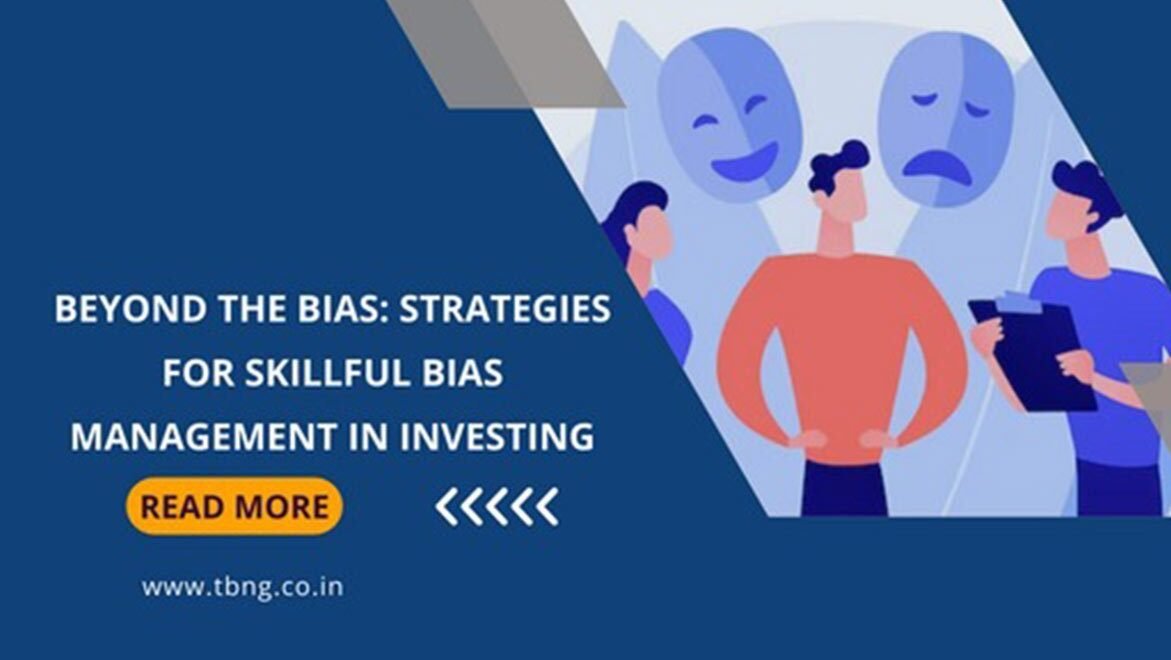Investing is not a mere numerical exercise; it encompasses a profound understanding of the human element. Success in investing isn’t a mere reflection of numbers and charts; it’s deeply intertwined with the intricate workings of our cognitive landscape. Amidst the spotlight on market trends and economic analyses, a crucial player takes centre stage—the human mind.
It is evident that market conditions do not solely dictate the decisions we make. The interplay of emotions, cognitive processes, and behavioural tendencies significantly shapes the outcomes of our investment endeavours. This blog dives into the practical aspects of how behavioural biases impact our investing patterns, shedding light on strategies to overcome these inherent pitfalls.
Understanding Loss Aversion:
Loss aversion, a prevalent emotional bias, shapes our investment decisions in profound ways. The fear of losses often leads to impulsive actions, such as locking in losses prematurely or holding onto declining assets with the hope of recovery. The practical takeaway? Acknowledge the discomfort of losses, but resist knee-jerk reactions. In volatile markets, a strategic, long-term perspective is the antidote to the emotional rollercoaster.
Unravelling the Illusion of Control Bias:
The illusion of control bias, a cognitive challenge, can disrupt rational thought and decision-making. Many investors fall into the trap of overestimating their control over market events, leading to under-diversification and overtrading. A practical approach involves acknowledging the limits of control, embracing a diversified portfolio, and basing decisions on fundamentals rather than perceived influence.
Navigating Confirmation Bias:
Confirmation bias, another cognitive hurdle, nudges us to favour information that aligns with our existing beliefs selectively. This bias can be particularly damaging, hindering the objective evaluation of investment opportunities. Practically speaking, investors must actively seek out diverse perspectives, challenge preconceived notions, and remain open to reassessing their views when faced with new information. A balanced approach fosters resilience against the confirmation bias trap.
Strategies to Manage Biases:
A practical and disciplined approach to managing biases is paramount. Intellectual self-discipline serves as a foundation, prompting continual self-awareness during decision-making. Playing devil’s advocate becomes a routine exercise, ensuring that decisions withstand scrutiny. Reliance on statistical information and historical data adds an extra layer of objectivity, helping to resist the temptation to find patterns in noisy data.
Take these simple measures to handle your biases proficiently:
- Acknowledge personal biases and be open to challenging your own assumptions.
- Resist the urge to make impulsive decisions based on short-term market fluctuations.
- Actively seek out opposing viewpoints to challenge your initial investment thesis.
- Encourage diverse perspectives to counterbalance individual biases.
- Regularly update your knowledge of market dynamics and economic trends.
- Reassess your investment strategy in light of changing market conditions.
- Embrace the willingness to change investment strategies when market conditions dictate.
- Avoid overconcentration in specific assets or sectors.
- Consult with financial advisors to gain an external, unbiased perspective.
Investing isn’t just about numbers and charts; it’s about understanding the human element. Recognising and navigating behavioural biases is the practical key to successful investing. Loss aversion, the illusion of control, and confirmation bias are part of the investor’s psyche, but with a disciplined mindset and strategic approach, they can be managed. By embracing these insights, investors can elevate their decision-making, steer clear of emotional pitfalls, and navigate the markets with confidence. After all, in the world of investing, understanding the mind can be as valuable as understanding the market.


Leave a Comment